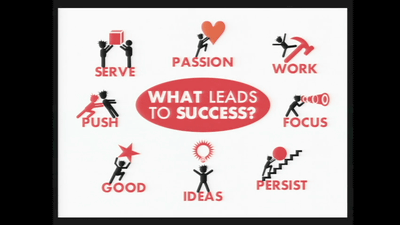What do you need to do meaningful 'good advice'?

Because others asked for advice, even though I told my thought carefully, there might be experience that the other person does not adhere to advice at all. However, Professor Harvard Business School pointed out that the possibility of advising in the first place was rare in the first place before becoming angry, "I advised you so seriously ...". Advice is given by Scientific American on how to become a good counselor who can give meaningful advice to the opponent.
How to Give Better Advice - Scientific American
https://www.scientificamerican.com/article/how-to-give-better-advice/
In the early 2000s, Mr. Greg Daike was appointed chairman of the British BBC (British Broadcasting Corporation). Many officers talked to Mr. Dyke "To clearly indicate the BBC's vision and command it," he explained the mission as chairman, Mr. Daiku said that he did not follow this advice. Mr. Dyke came to the office of BBC for the first five months and asked the staff "What should we do to make good things for viewers?" Mr. Dyke 's approach succeeded, the TV viewing ratio of BBC 1 and BBC 2 rose, and the BBC radio seems to have got a record listener.
Professor Francesca Gino of Harvard Business School says that Mr. Dyke's behavior makes sense from the viewpoint of "How to advise is effective?" According to Professor Zino, there are "disagreements on ideas" between advisors (advisers) who need advice and advisers who need advice (advisory), and hence it seems that often advice is not effective, but Dike Mr. Law 's advice law seems to correspond to the ideal advice found from research.
According to Professor Zino, the adviser who generally seeks advice is not asking for the information "what should I do?", But "information that presents more choices and makes us aware of different ways of thinking" It is what you are asking for. On the other hand, advisors advising advises themselves from the knowledge and experience of themselves "to narrow the choices and guide them to the right way". In other words, there is a fundamental inconsistency of advisors trying to narrow the information to the adviser who wishes to expand the information, so advisors often feel that "this advice is not useful but harmful".
Professor Geno says that disagreements about this type of advice are everywhere and that consultants, counselors, parents, teachers, doctors, financial analysts and others can not give appropriate advice.

Furthermore, Professor Zino pointed out that when advice is given, people tend not to give advice as they ask. For example, when an organization leader advises a manager of a subordinate to be an example of another employee, "Do not waste time on social media" "To go to the gym rather than spend watching television" It is something that seeks such behavior, but the leader himself does not necessarily take such action. This is because there is a discrepancy between the adviser and the advisor "What is worth it?" Professor Zino thinks that while advisors focus on socially acceptable factors, advisors are disagreements that focus on more practical elements.
Based on the above, Professor Zino describes that important things for advice as an advisor are "to see things from the viewpoint of those who receive advice". Mr. Ting Chan of Harvard Business School conducted an experiment to invite beginners to play the guitar by recruiting guitarists. In this experiment, half of the guitarists had them perform as usual, and half of the remaining guitarists requested playing by the hand opposite to their dominant hand. After that, when gathering beginners who have less than a year of guitar and judging whether guitarist's advice is useful or not, it seems that there were many cases that judged that guitarist advice played with non handed hands was more useful . In other words, guitarists who were able to stand from the beginner's point of view by playing the guitar with unfamiliar hands became good advisers providing advice that the adviser needs.

To be a good adviser, it is important to think in the position of a person receiving advice, but Professor Zino describes that it is rather harmful to infer too much about the other 's behavior, thoughts, feelings, etc. Therefore, before giving advice, before you present what you think is good, it is important to understand the situation "Why did the other party feel consultation needed?" . On top of that, Professor Zino is saying that it is effective to understand what other people say, "What do you most like to do?"
Mr. Daike who kept asking "What should I do to make something good for my audience?" Asked about how to understand the complaints the BBC staff holds by asking questions and how to solve it I got the idea itself from the staff. In discussing each other, advisors and advisors can understand the problem deeply, so that advice can be effective because they can share common objectives, and it was also successful to raise the morale of the staff Professor Zino is analyzing.
Related Posts:
in Note, Posted by darkhorse_log







